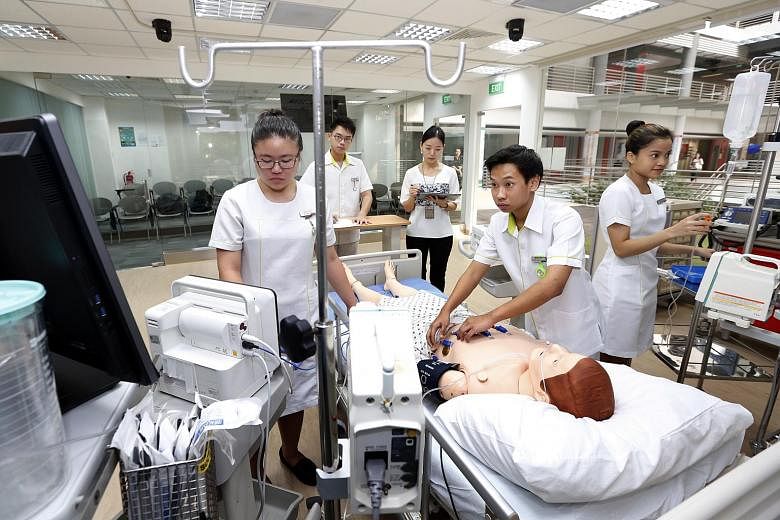SINGAPORE - The world is undergoing profound economic and social changes and Singapore's higher education system must take into account these changes as it expands and evolves over the next few years, said co-Acting Education Minister Ong Ye Kung on Wednesday (Oct 14) morning.
This is because "education systems exist and have meaning only in context" and these contexts are evolving, with significant implications on higher education, he added.
Touching on the industries, Mr Ong said that a company can no longer be successful just by lowering costs and enlarging its scale of production. It has to be innovative and make its products special to customers.
The traditional lines between products and services are also becoming increasingly blurred.
"Today, one can offer a taxi service without owning any vehicles, offer hotel services without owning any rooms or buildings. And soon we may have a big successful university that has no classrooms," he said.
Mr Ong was speaking at the opening of the OECD- Singapore Conference on Higher Education Futures held at Resorts World Convention Centre on Sentosa.
Societies, too, are changing. People are increasingly educated, and technology and the Internet have created opportunities for mobility and progress in a big way, he said.
"Advances in technology have the potential to replace or transform jobs that not just involve manual work, but also cognitive and increasingly complex intellectual tasks," Mr Ong added.
"To prepare people well for this reality, education institutions must be well plugged into the needs of industries and the real and unpredictable world."
Any country's higher education system has to evolve within these larger social, economic and technological contexts, said Mr Ong in his first major speech outlining the Government's policy considerations in developing the higher-education sector.
But it also has to take into account the "bottom-up" aspirations of Singaporeans.
"The rethinking of the meaning of higher education must include the fact that the collective good is attained, or in fact, can only be attained, by the ability of individuals to pursue their own talents and passion," he said.
"Every Singaporean counts, and he or she can only count if the system allows maximum play of what he or she is best at doing."
Mr Ong said while the Government increases the number of university places, it will not do so by adding more of the same but in the form of new programmes and new institutions.
It is not a cookie cutter but a full range - square pegs, round pegs, and new and fantastical shapes, he added.
"Diversity will not merely be in terms of course choices, but will be multi-dimensional," said Mr Ong.
"It means rethinking what we learn, when we learn, where and how we learn, and the kind of credentials we achieve at the end of the training, as well as how society recognises and regards those credentials."
This multi-dimensional and qualitative change will be done through SkillsFuture, launched last year to provide Singaporeans with the opportunities to develop to their fullest potential throughout life, regardless of their starting points.
The definition of merit and success will be broadened, said Mr Ong.
"But what is beyond Government's control - and rightly so - is how society regards and recognises a skilled worker, a craftsman and a master. This will have to be part of our continuing evolution as a society."


